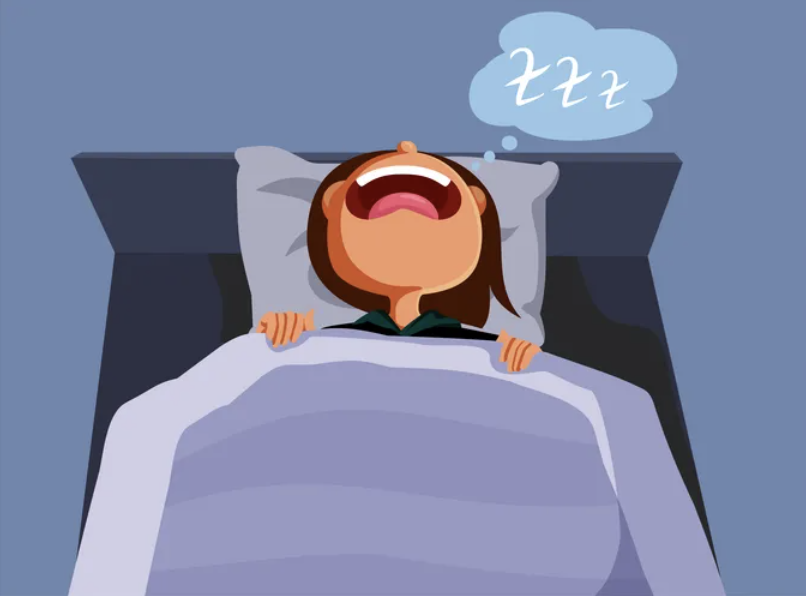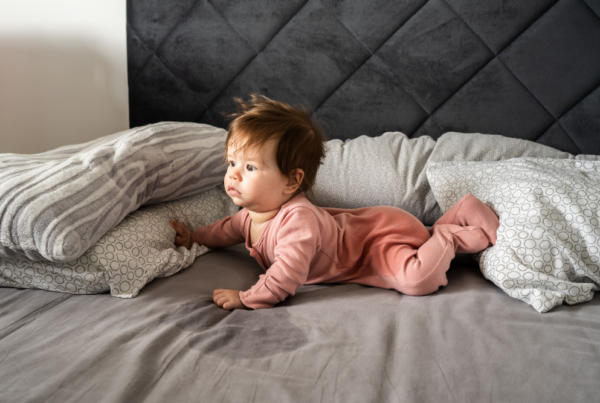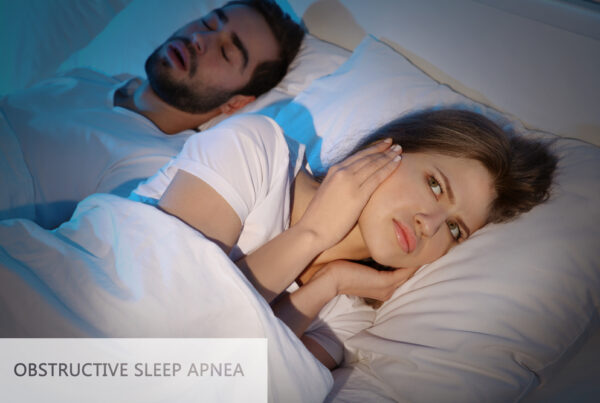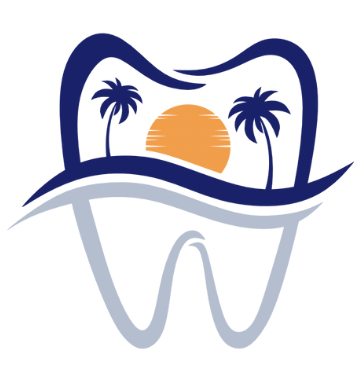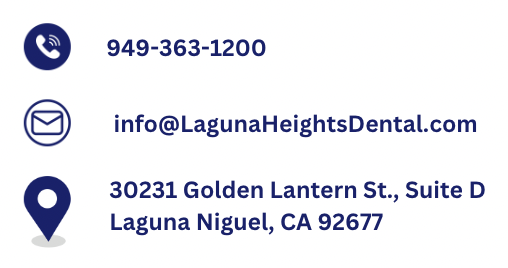If restless sleep or pediatric sleep apnea is an issue for your child, it might be more than just a passing phase. Pediatric sleep apnea is a common culprit, and Dr. Nazita Gaff at Laguna Heights Dental in Laguna Niguel, CA, is here to provide expert care. With appropriate treatment, your child can achieve restful sleep, wake up energized, and experience improved emotional well-being.
Dr. Gaff is dedicated to treating pediatric sleep apnea, enhancing not only your child’s nightly rest but also their overall health. Bid farewell to sleepless nights and groggy mornings, and welcome a journey towards healthier, more restful sleep with Dr. Gaff’s specialized care.
Understanding Pediatric Sleep Apnea
Pediatric sleep apnea affects children’s breathing during sleep, typically due to obstructions in the airway like enlarged tonsils or adenoids. Common symptoms include:
- Loud Snoring: A prevalent sign where children with sleep apnea tend to snore loudly.
- Choking or Gasping: Instances where they might choke or gasp for air during sleep.
- Restless Sleep: Characterized by frequent awakenings that disrupt deep sleep.
- Daytime Fatigue: A direct result of poor sleep quality leaving children feeling tired throughout the day.
- Behavioral Issues: Manifestations such as irritability or concentration difficulties.
- Bedwetting and Teeth Grinding: Often co-occurring symptoms in children with this condition.
Dr. Gaff is skilled in diagnosing and managing these symptoms, ensuring your child sleeps better and, consequently, feels better.
Causes Behind Pediatric Sleep Apnea
Understanding what leads to sleep apnea in children is crucial. The primary causes are often:
- Enlarged Tonsils and Adenoids: The most common physical blockers of airways.
- Obesity: Extra weight can intensify the condition.
- Allergies: These can lead to nasal congestion that complicates breathing at night.
- Family History: A genetic predisposition may increase the likelihood of developing sleep apnea.
- Facial Structure: Certain structural characteristics might predispose children to having blocked airways.
Dr. Gaff takes these factors into account when tailoring a treatment plan specific to your child’s needs.
The Symptoms of Pediatric Sleep Apnea
Pediatric sleep apnea often remains undetected because parents might not immediately realize that their child’s challenges are due to this condition. Instead, they notice signs and symptoms that affect their child’s behavior and overall health both at night and during the day.
Early recognition of these symptoms is essential for timely diagnosis and effective treatment.
Research suggests that 1-5% of children have sleep apnea, predominantly between the ages of 2 and 6. This disorder presents in various forms:
- Mouth Breathing: Children with sleep apnea frequently breathe through their mouths instead of their noses.
- Nightmares and Restless Sleep: Regular nightmares and restlessness at night may signal breathing troubles.
- Chronic Allergies: Allergies can worsen respiratory problems, intensifying symptoms of sleep apnea.
- Bedwetting: Sleep apnea can lead to bedwetting issues beyond the toddler years.
- Swollen Tonsils or Adenoids: Often, enlarged tonsils or adenoids physically block the airways.
- Irritability: Sleep deprivation can result in children becoming unusually irritable or upset.
- Headaches: Morning headaches are a common indicator of disrupted sleep due to apnea.
- Snoring: Consistent, loud snoring is a well-known symptom of sleep apnea.
- Grinding Teeth: Known as bruxism, this can both indicate and exacerbate sleep apnea.
- ADD/ADHD: Sleep disturbances can manifest as behavioral issues similar to Attention Deficit Disorders.
- Tongue & Lip Tie: Anatomical restrictions in the mouth can lead to breathing difficulties.
- Depression: Ongoing sleep problems may cause or worsen depressive symptoms.
- Anger: Chronic sleep disruption often leads to increased episodes of anger.
If you observe any of these symptoms in your child, it may be time to seek a professional opinion. Dr. Nazita Gaff in Laguna Niguel CA, specializes in diagnosing and treating pediatric sleep apnea. Schedule a consultation with Dr. Gaff today to address your child’s sleep health effectively.
Testing for Pediatric Sleep Apnea
Are you worried about your child’s sleep patterns? Begin with an easy-to-take sleep apnea quiz offered by Laguna Heights Dental.
This simple test is designed to identify potential signs of sleep apnea from the comfort of your home, providing valuable insights that might otherwise go unnoticed. It’s a quick and effective first step towards resolving any sleep-related issues.
If the quiz indicate a potential for sleep apnea, Dr. Nazita Gaff and her dedicated team are prepared to help. Their goal is to transform your child’s sleep into a peaceful and restorative experience.
Treatments For Pediatric Sleep Apnea
Treating pediatric sleep apnea effectively requires a customized approach, tailored to each child’s specific symptoms and needs. Here are some common treatments:
- CPAP Machines: These devices deliver air pressure through a mask to keep the airway open, typically used for moderate to severe cases.
- Oral Appliances: Custom devices worn at night to adjust the position of the jaw and tongue, helping keep the airway open.
- Myofunctional Therapy: Exercises designed to strengthen the muscles of the mouth and throat to improve breathing patterns.
- Surgery: Sometimes necessary to remove physical blockages like enlarged tonsils or adenoids in severe cases.
Each treatment offers distinct benefits and may be recommended based on the unique needs of the child.
The Vivos System
The Vivos System is a standout, non-surgical treatment method available at Laguna Heights Dental. This innovative approach uses a custom-designed oral appliance to gradually modify the dental and nasal structures over time.
- Custom Fit: Each Vivos device is precisely tailored to fit each child comfortably, based on their specific dental and skeletal structure.
- Treatment Duration: Typically, the Vivos treatment extends between 12 to 24 months, with the appliance worn nightly.
- Developmental Benefits: The device gently expands the jaw and nasal passages, improving airway function and supporting proper growth and development of the facial structures. This not only enhances breathing and sleep quality but also contributes to overall facial aesthetics.
The Vivos System offers a unique advantage by addressing the root causes of sleep apnea and promoting healthier development of the jaw and airway, which can lead to comprehensive benefits for a child’s health and well-being.
If you’re exploring treatment options for your child’s sleep apnea, consider the Vivos System at Laguna Heights Dental, where Dr. Nazita Gaff provides effective, non-invasive solutions tailored to improve your child’s sleep and overall health without the need for surgery.
The Importance of Early Treatment
Without timely intervention, pediatric sleep apnea can lead to a lot of complications, including:
- Learning and Behavioral Challenges: Sleep deprivation can significantly impair cognitive functions and behavioral responses.
- Growth Issues: Disrupted sleep can interfere with the release of growth hormones.
- Cardiovascular Strain: Chronic sleep issues can put additional strain on the heart.
- Energy Levels: Insufficient rest can result in ongoing fatigue, impacting daily activities.
A consultation with Dr. Gaff can help prevent these problems, ensuring your child enjoys a healthier, more dynamic lifestyle.
Act Now!
Dr. Nazita Gaff understands the challenges of pediatric sleep apnea and tailors treatment programs to tackle both the symptoms and the underlying causes, focusing on your child’s comfort and overall health.
Treatment for pediatric sleep apnea at Laguna Heights Dental can significantly improve your child’s quality of sleep, elevate their alertness during the day, and enhance their overall mood. We are committed to providing the care and strategies your child needs for a balanced and healthy life.
Here’s How We Approach It:
- Comprehensive Consultation: Begin with a detailed evaluation of your child’s specific needs.
- Personalized Treatment Plan: Dr. Gaff devises a targeted strategy for symptom relief and improved sleep.
- Supportive Aftercare: Ongoing support is provided to ensure long-term success.
Don’t wait—schedule your free consultation today and visit our website for more details on our dedicated approach to treating pediatric sleep apnea. Help your child achieve restful sleep and a happier, healthier life.
Questions & Answers
How do I know if my child has sleep apnea?
Watch for loud snoring, pauses in breathing, restless sleep, daytime sleepiness, or behavior changes like irritability.
Is pediatric sleep apnea serious?
Yes, it can affect your child’s health, behavior, and growth. Therefore, it’s important to address it promptly.
Can children outgrow sleep apnea?
Sometimes, especially if it’s linked to enlarged tonsils that they might shrink as they grow. However, don’t wait; treatment might be needed.
What is a CPAP machine?
A CPAP machine helps keep your child’s airway open with a stream of air through a mask they wear while sleeping.
Are there any side effects of treatment?
Yes, treatments like CPAP can cause nasal congestion or discomfort. Surgery has its own risks and recovery period.
How can I help my child at home?
Ensure they maintain a healthy weight, keep allergies in check, and remove any nasal blockages to ease breathing.
When should I see a doctor?
See a doctor if your child shows signs of sleep apnea, or if their sleep issues affect their day-to-day life.
